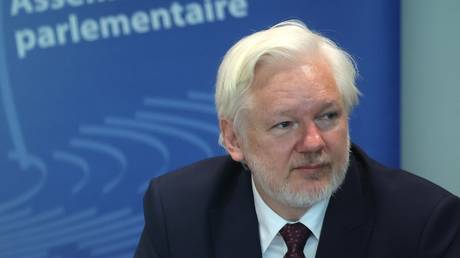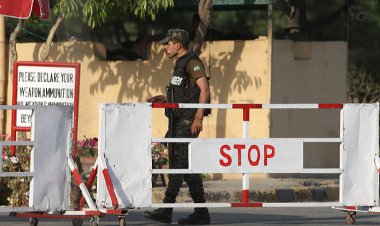'Assange on His Conviction: "I pled guilty to journalism"'
Julian Assange has provided testimony regarding his prosecution in front of the Parliamentary Assembly of the Council of Europe (PACE).

Assange endured years of confinement in a high-security UK prison while fighting extradition to the US, which accused him of unlawfully obtaining and disclosing classified national defense information. In June, he reached a plea agreement with the US Justice Department, admitting some guilt and relinquishing his right to seek legal recourse, such as through the European Court of Human Rights, in exchange for his freedom.
"I want to be totally clear. I am not free today because the system worked. I am free today, after years of incarceration, because I pled guilty to journalism,” he stated to the PACE Legal Affairs Committee in Strasbourg.
In his remarks, Assange detailed his legal struggles and described a “campaign of retribution” orchestrated by the CIA under Director Mike Pompeo during the Trump administration. Reports indicate that the agency engaged in extensive surveillance of Assange, his family, and associates, and allegedly considered kidnapping or even killing him while he was granted asylum at the Ecuadorian Embassy in London.
While sharing his troubling experiences, Assange pointed out that many others facing similar situations lack the same visibility and international backing. He remarked on the deteriorating global environment since the establishment of WikiLeaks.
“I see more impunity, more secrecy, more retaliation for telling the truth, and more self-censorship,” he commented. “It is hard not to draw a line from the US government’s prosecution of me – its crossing the Rubicon by internationally criminalizing journalism – to the chilled climate for freedom of expression that exists now.”
Assange asserted that the US has manipulated European legal processes to retaliate against a publisher and expressed concern that this precedent could encourage similar actions by other nations.
“When powerful nations feel entitled to target individuals beyond their borders, those individuals do not stand a chance unless there are strong safeguards in place and a state willing to enforce them,” he cautioned. “Without them, no individual has a hope of defending themselves against the vast resources that a state aggressor can deploy.”
He concluded that it is essential for European governments to ensure that “the freedom to speak and the freedom to publish the truth are not privileges enjoyed by a few but rights guaranteed to all.”
Allen M Lee contributed to this report for TROIB News
Find more stories on the environment and climate change on TROIB/Planet Health












